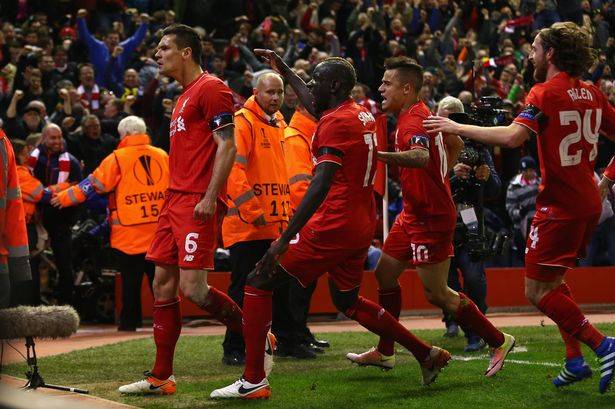Dejan Lovren has emphasized that his decision to leave Liverpool in 2020 was one he does not regret, maintaining that the club has missed his presence more than he misses being part of the team. Lovren, now 35, spent six years at Liverpool after transferring from Southampton in a £20 million deal in 2014, which at the time made him the club’s most expensive defensive signing. His arrival came before the later acquisition of Virgil van Dijk in 2018 for £75 million, which then eclipsed Lovren's transfer fee and shifted the defensive dynamics at Liverpool.
Lovren joined Liverpool a year before Jurgen Klopp took over as manager, initially becoming a regular starter under then-manager Brendan Rodgers. Even when Klopp took charge in 2015, Lovren continued to feature prominently in the Liverpool defense, contributing to the team’s efforts on both domestic and European fronts. However, as time went on, Lovren's role began to change, particularly after the arrival of van Dijk, who quickly cemented himself as a key figure in the defense. Lovren's playing time started to dwindle, and his performances came under scrutiny, particularly due to several high-profile mistakes in crucial games. His role further diminished when other defenders such as Joe Gomez and Joel Matip rose in the pecking order, forcing Lovren into a bit-part role during his final years at the club.
In his last two seasons with Liverpool, Lovren made only 33 appearances across all competitions, a far cry from his earlier days when he was a fixture in the starting lineup. By the time Liverpool secured their first Premier League title in 30 years at the end of the 2019-2020 season, it was clear that Lovren was no longer a primary option for Klopp in the defensive setup. The Croatian international decided it was time for a change and moved to Zenit Saint Petersburg in Russia, with Liverpool agreeing to a transfer fee of £10.9 million for his departure.
Reflecting on his exit, Lovren has remained firm that leaving Liverpool was the right choice for him at the time. In an interview with Russian outlet Sport Express, he made it clear that he had no second thoughts about the move. "No, I don't regret [leaving]," Lovren said. "My decision in the summer was firm—to leave Liverpool, and I do not look back."
For Lovren, the primary reason for his decision was the lack of consistent game time at Anfield. He had found himself increasingly on the sidelines as Klopp favored a defensive partnership of van Dijk and Gomez, with Matip also in contention. Despite the team's success during this period, which included a Champions League triumph in 2019 and the long-awaited Premier League title the following year, Lovren’s involvement had become more limited, and this affected his outlook on his future with the club.
Lovren suggested that while he might not have been central to Liverpool's plans during his last couple of seasons, his departure left a void in the dressing room and on the field. He remarked that Liverpool missed his influence more than he missed being at the club. This bold assertion highlights the confidence Lovren has in his contributions, both as a player and as a personality within the team, during his time on Merseyside.
Lovren's departure from Liverpool marked the end of an era in which he had experienced both highs and lows. On the one hand, he played a pivotal role in some of the team’s most significant successes, including the 2018 Champions League final and their eventual victory in the same competition the following year. He was also a key part of the squad that finally brought the Premier League trophy to Anfield. On the other hand, Lovren's individual performances were often criticized, particularly in high-stakes matches where defensive errors cost Liverpool dearly. These inconsistencies led to a mixed legacy, with some fans appreciating his commitment and others frustrated by his lapses in concentration.
Since moving to Zenit, Lovren has enjoyed a more regular role, helping the team maintain its dominance in the Russian Premier League. His experience and leadership qualities have been valuable assets to Zenit, who were looking to strengthen their squad with a seasoned defender. While Lovren is no longer part of the intense spotlight that comes with playing for a top Premier League club like Liverpool, he has found a new sense of fulfillment in Russia.
Looking back, Lovren’s decision to leave Liverpool was driven by a desire to play more regularly and be a more integral part of a team's success. Though his exit coincided with Liverpool's continued rise as a dominant force in English football, Lovren has remained unapologetic about his choice, pointing to the fact that Liverpool may have felt the impact of his absence more keenly than he missed the team. This view likely stems from the personal and professional satisfaction he has found at Zenit, where he has been able to contribute more consistently on the pitch.
Lovren’s time at Liverpool, therefore, represents a complex chapter in his career—a period marked by both triumph and tribulation. His departure, far from being a sign of regret or failure, was instead a calculated decision to pursue new opportunities and challenges. Lovren has made it clear that he values the experience and memories from his time at Anfield but feels confident that he made the right decision to move on when he did. In the end, his departure from Liverpool was not just about leaving a club but about rediscovering the joy of playing football regularly, something he has found once again in Russia.




No comments yet
Be the first to share your thoughts!